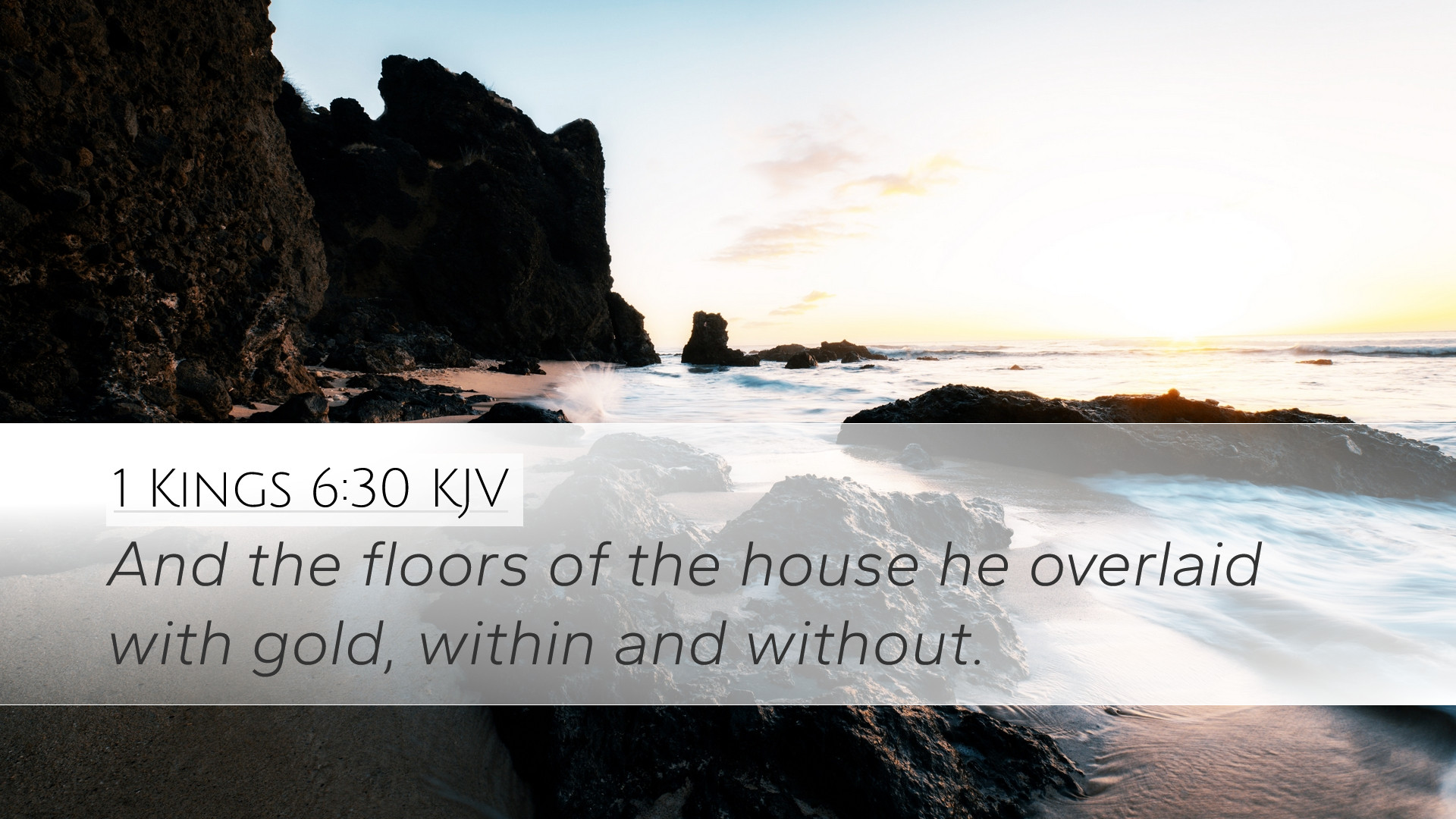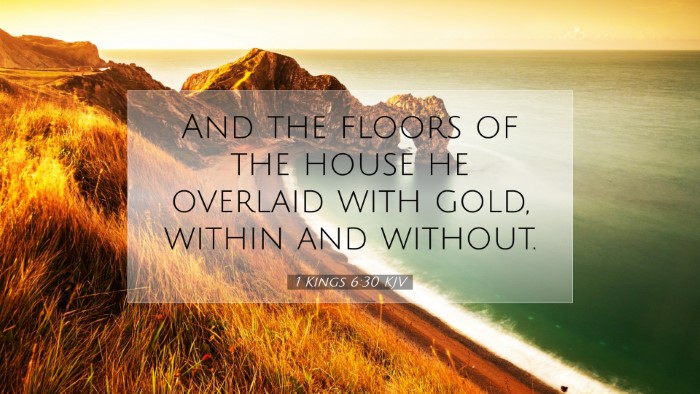Commentary on 1 Kings 6:30
Bible Verse: "And the floor of the house he overlaid with gold, within and without."
Introduction
The construction of Solomon's temple is one of the most significant events in biblical history, representing not only a physical structure but also a profound theological statement regarding God's dwelling among His people. This verse encapsulates a key aspect of Solomon's architectural vision—his commitment to draping the temple in gold, signifying purity, glory, and the divine presence.
Theological Significance
The decision to overlay the temple’s floor with gold reflects Solomon’s understanding of the sacredness of the space he was creating. In the context of ancient Near Eastern architecture, such lavish embellishments were common in temples devoted to deities. However, Solomon's work had a unique purpose—to honor the God of Israel, who is unlike any other deity.
Albert Barnes, in his commentary, underscores the gold's representation of divine glory, suggesting that "the gold typifies the glory of God that fills the temple." The opulent gold surfaces would, therefore, serve as a visual reminder of God's transcendent majesty and the awe that He commands.
Architectural and Material Details
Matthew Henry provides insight into the materials used for the temple, discussing both their abundance and the skilled craftsmanship that accompanied their application. He notes that this lavish use of gold was not merely for aesthetic reasons but demonstrated Solomon's desire to illustrate the holiness of God and the sacredness of the worship that would occur within these walls.
The gold overlay can be seen as a reflection of God's unparalleled worthiness. Adam Clarke remarks on the labor required to produce such opulence, indicating the substantial economic investment made in the temple’s construction. The city of Jerusalem was transformed into a place that glorified God; the temple became a central place for communal worship and sacrifice.
Symbolism of Gold
The choice of gold carries strong symbolic implications in Scripture. Gold often represents purity and divinity, reflecting God’s righteousness and glory. This symbolism is pervasive throughout the Bible, as it appears in discussions about the holiness of God and His dwelling among men.
- Purity: Gold is a metal that does not tarnish, mirroring the pristine nature of God.
- Divine Presence: The temple is God's dwelling; gold is fitting for the environment where God's presence would abide.
- Wealth of God's Kingdom: The wealth reflected in gold signifies the blessings of God’s kingdom and the abundance He provides.
Contrast with Human Constructs
Solomon's choice to encase the temple in gold also provides a contrast to the worldly systems of wealth and governance. The temple represented a departure from the materialism of neighboring cultures, serving to redirect the focus toward spiritual wealth rather than earthly gain. As Matthew Henry pointed out, the temple serves as a reminder that "spiritual riches vastly exceed those of earth."
Lessons for Today's Believers
The opulence of the temple challenges modern believers to reflect on how they honor God in their own lives. Just as Solomon adorned the temple with gold, believers today are called to offer their best to the Lord, whether through service, worship, or the way they conduct their lives.
The verse invites a reflection on personal holiness and the commitment one has to live a life that is pleasing to God. Albert Barnes emphasizes, "Let our lives be as precious as gold, filled with worship, reverence, and service to our Creator."
Conclusion
In summary, 1 Kings 6:30 serves as a critical reminder of the relationship between the sacred and the profane, urging believers to consider the implications of how they reflect God's glory. The lavish gold layered within the temple stands not only as an architectural marvel but as a profound statement of faith that continues to speak to the hearts of those who strive to build a holy sanctuary within themselves.
As pastors, students, theologians, and biblical scholars, the study of this verse challenges each individual to evaluate the true meaning of worship and how it manifests within our lives and communities. The gold of the temple is a call for each believer to live out the richness of God's grace in a world that desperately needs the light of His glory.


